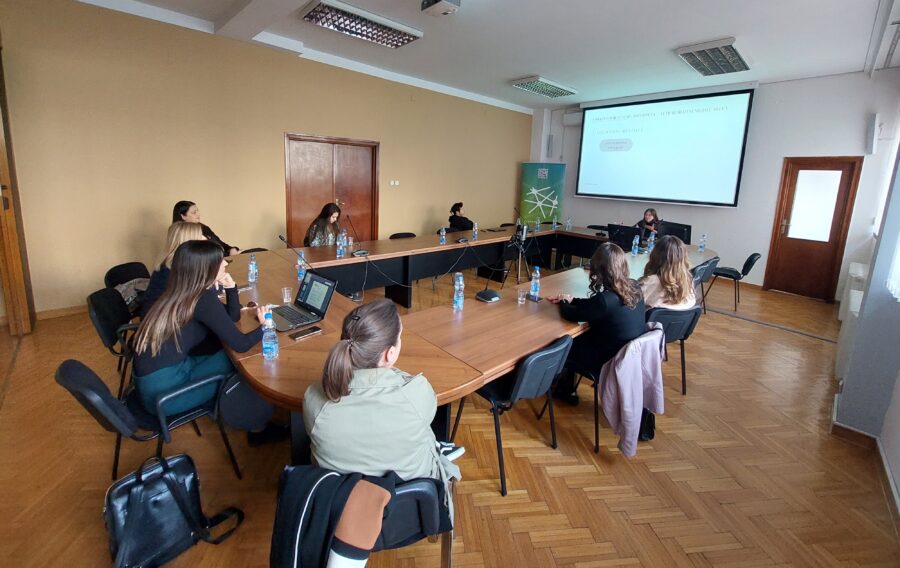As part of the cycle of lectures by new researchers at the Institute of Social Sciences, Milica Ljevaja, a Researcher Trainee from the Centre for Politicological Research and Public Opinion, held a lecture on February 28, 2024 in the Great Hall of the Institute of Social Sciences on the topic „Aspects of identity and mental health – the role of psychological needs and culture”.
The lecture was devoted to the linkage between identity and mental health. When determining identity, different aspects of it was pointed out – people exhibit unique characteristics, perform different social roles, or establish relationships with other individuals and groups. This diversity in focusing on different aspects of identity is reflected in the so-called identity orientations. Aspects of identity play an important role in understanding both the psychological and subjective well-being of people.
According to the Tetrapartite model of the self, there are four such orientations: personal, public, relational, and collective identity. Personal identity presupposes a private experience of oneself, one’s own values and beliefs, as well as personal goals, feelings, and thoughts. Relational identity presupposes the establishment of relationships with other people, while collective identity indicates belonging, that is, membership in a group. Finally, public identity presupposes popularity, reputation, or the impression we leave on other people. During the lecture, it was pointed out that the tetrapartite model does not talk about assessing the satisfaction of needs related to identities.
In this regard, it was pointed out that some authors explain the relationship between aspects of identity and well-being by the satisfaction or frustration of basic psychological needs. At the end of the lecture, the possibility that identity contributes to mental health through the fulfillment of basic psychological needs was emphasized, as well as the importance of harmonizing our personal characteristics with the characteristics of the culture in which we live for that relationship.

